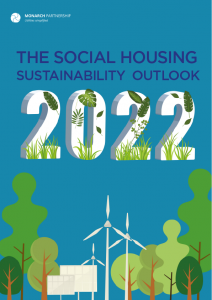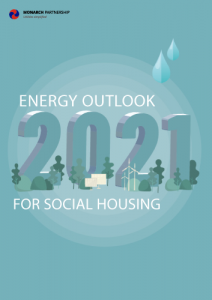The much-anticipated sight of Chancellor Philip Hammond and his fetching red briefcase on Monday (29th October) meant only one thing: it was time for the 2018 Autumn Budget. To avoid you having to scour the 106-page document or listen back through the barrage of dad jokes to work out what directly affects you, we have summarised the main points for the Autumn Budget 2018 in green energy, housing and local authorities – the areas that directly affect our services and client sectors.
But before we do, it is worth noting that prior to the Budget announcement, Hammond stated that a completely new Budget would have to be drawn up in the event of a no-deal Brexit – one equipped with ‘fiscal buffers’, to prop up the economy.
It is also worth noting that, with departure date fast approaching and a deal with the EU hanging in the balance, Hammond was still resolute in announcing an end to austerity, which became his overriding message throughout.
Autumn Budget 2018 – green energy, housing and local authority focus points
Energy
- Carbon Price Support (CPS) rate frozen for 2020-21, with a view to decreasing it the following year if Total Carbon Price is still high.
- Introduction of a Carbon Emissions Tax if the UK leave the EU Emissions Trading System (ETS) next year, in order to meet the targets of the Climate Change Act 2008. This tax applies to all stationary installations currently participating in the EU ETS from 1 April 2019. This is all focused towards setting the Total Carbon Price at the right level to aid the phase-out of unabated coal.
- A rebalancing of Climate Change Levy (CCL) rates has been confirmed for 2020 onwards, in order to reflect recent fuel mix data. The aim is to lower the electricity rates and raise the gas rates to achieve a balanced ratio of 1:1 by 2025.
- Industrial Energy Transformation Fund pledged to aid energy-intensive companies in switching to low-carbon practices and reduce their energy bills. An investment of £315m is behind the fund.
Sustainability
- Hammond to “introduce a new tax on the manufacture and import of plastic packaging which contains less than 30% recycled plastic”.
- Absence of disposable cup levy in Budget, explaining that a levy will not be effective enough to thwart the widespread use of disposable cups.
- £13m investment to combat flood risks and climate change. Increased flood warning system with additional 62,000 at-risk properties and more info on prevention for those whose properties are at risk.
- Extra £20m funding for councils to meet air quality obligations.
- £60m on planting millions of trees.
Find out how we can make you greener
Housing
With over 200 of our clients being housing associations, it was also in our interest to pick out the biggest changes in the sector.
Find out how we save housing associations on utilities
The Chancellor’s main emphasis in housing was on first time buyers, with stamp duty being removed for most first time buyers with shared ownership. He also extended the Help to Buy scheme by two years to 2023, to help get young people on the property ladder.
Hammond extended the cancellation of stamp duty for first-time buyers to those buying shared ownership properties worth up to £500,000. This will also be backdated to anyone who has bought properties since last year’s Budget.
Lastly, the Chancellor announced a £675m fund to help create homes from empty shops on the high streets. This is part of his £1.5bn funding to help struggling high streets.
Further announcements to aid housebuilding include £500m for the Housing Infrastructure Fund, which he claims will see 650,000 extra homes built. He also says he will make it easier for neighbourhoods to allocate land for housing.
On the topic of neighbourhoods, we also work with – and make savings for – Local Authorities. Here’s how their sector was addressed in the Budget.
Local Authorities
Announcing a boost in social care for local authorities, Hammond stated:
- Another £650m of grant funding for English councils for 2019-20 and £45m for the disabled facilities grant in England in 2018-19.
- A further £84m over the next five years to expand children’s social care programmes to 20 further councils.
Sources















